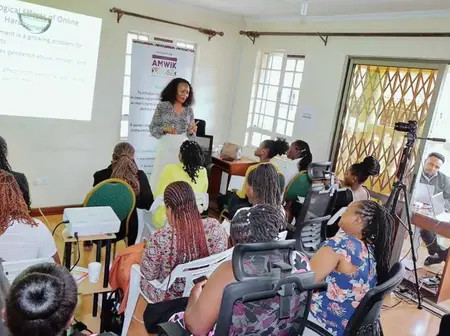At 5AM, Grace (not her real name) is already scrolling through breaking news alerts, juggling her assignment list, and bracing herself for another unpredictable day. By evening, she will have reported on a tragedy, fielded online harassment, and struggled to meet deadlines. What her readers never see is the toll: pounding headaches, sleepless nights, and the creeping weight of anxiety that refuses to lift.
Her story mirrors that of many journalists across Kenya, caught between the relentless pace of the job and the mounting pressures of daily life. Rising costs of living, political intolerance, and widespread dissatisfaction with governance are fueling a surge in depression, anxiety, and substance abuse, and those who tell the nation’s stories are not immune
Journalism may appear fast-paced and adrenaline-fueled, but beneath the headlines lies a profession marked by quiet suffering.
Counseling psychologist Dinah Kituyi describes journalism as one of the most emotionally demanding professions, exposing media workers to trauma in multiple ways.
“By its very nature, journalism puts reporters at risk of psychological harm,” she says. “They experience direct exposure to danger in conflict zones or crisis situations, absorb secondary trauma through interviews with victims, and endure chronic stress from intense workloads, often within unsupportive work environments.”
Kituyi also points to what she calls complex loss a type of emotional injury journalists face when covering tragedy, experiencing personal loss, or coping with the instability of the media industry itself.
These cumulative pressures can lead to what she identifies as psychological injuries, often marked by:
“Over time, these symptoms don’t just impact the journalist , they affect newsroom culture, ethical decision-making, and ultimately, the public’s access to compassionate and accurate storytelling,” Kituyi adds.
As the emotional toll deepens, the signs are becoming harder to ignore: rising absenteeism, substance abuse, and even suicide are no longer distant risks, but real challenges facing media professionals today.
To help bridge the gap, the Association of Media Women in Kenya (AMWIK), with support from the Urgent Action Fund (UAF), introduced a 2 day specialized mental health training for journalists. The sessions provide a tailored wellness program that responds directly to the pressures and vulnerabilities of the profession.
“The need is urgent,” AMWIK notes. “Our focus is on early detection, preventive care, and building resilience in a demanding field. Without such support, journalists and their families bear the cost through lost income, emotional strain, and long-term caregiving burdens.”
Experts stress that while systemic support is vital, individuals can still take small steps to manage stress:
But resilience is not simple. Factors like poverty, discrimination, or lack of access to healthcare make coping harder.
“Stress management isn’t just about willpower,” Kituyi notes. “It’s also about the structures or lack of them around us.”
Beyond awareness to action
Kenya has made progress in mental health awareness, but awareness alone is no longer enough. Journalists like Grace need more than workshops; they need safe workplaces, policies that prioritize wellbeing, and communities that understand the human cost of untold stories.
As Grace puts it: “I want to keep telling stories that matter. But I also want to live to tell them.”

Leave a Reply